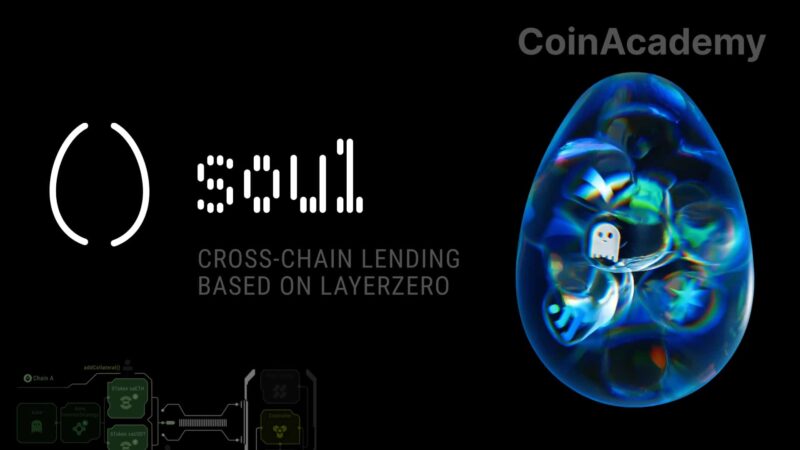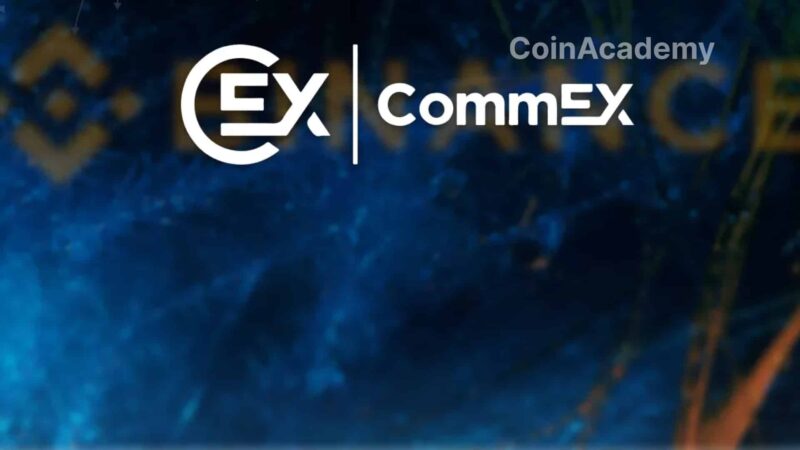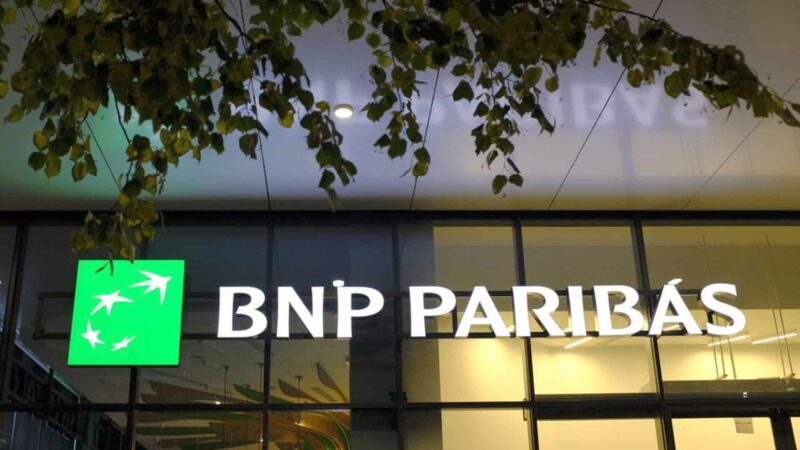The Coin Hebdo is the go-to source for staying up to date with the latest crypto, NFT, Metaverse & Web3 news of the week! 📰
Jesse Powell (Kraken) sees Binance’s fine as a positive for the ecosystem
Jesse Powell, co-founder of Kraken, has recently expressed a positive view regarding the fine imposed on Binance. According to him, this legal action is not a setback but rather a beneficial rebalancing for the entire cryptocurrency ecosystem. Powell emphasizes the importance of a long-term approach in the sector, seeing every regulatory challenge as an opportunity for cryptocurrency companies to regulate themselves and promote fairness.
He then adds that American cryptocurrency companies, such as Kraken, Coinbase, and Ripple, are “easy targets for US regulators.“
Meanwhile, Kraken is facing its own regulatory challenges, including a lawsuit from the Securities and Exchange Commission (SEC). The SEC accuses Kraken of commingling client funds and not registering as an exchange. Despite these allegations, Kraken plans to vigorously defend itself in court, disagreeing with the SEC’s claims.
JTO token airdrop to engage the Solana community
Title: Launch of JTO Token by the Jito Foundation with an Airdrop to Engage the Solana Community
The Jito Foundation, a key player in the Solana ecosystem, announces the launch of its governance token, JTO. This initiative aims to enhance community participation in decision-making and network development. The JTO token will play a crucial role in managing Jito’s liquid staking protocol.
In parallel, the Jito Foundation has revealed a distribution plan for 1 billion JTO tokens, with an initial circulation of 115 million. To celebrate this launch and encourage community engagement, an airdrop is planned, allocating 10% of JTO tokens to active community members.
👉 Jito crypto airdrop: How to be eligible?
But what is JITO?
Jito is a liquid staking protocol built on the Solana blockchain. This system allows users to maintain access to their liquidity even when it is staked. In practice, when users deposit their SOL tokens into Jito’s liquidity pool, they receive JitoSOL tokens in return, representing the value of their deposit.
This means that users benefit from a dual opportunity: on the one hand, their staked SOL continues to generate returns on Jito, and on the other hand, they can use their JitoSOL tokens on other decentralized finance platforms to maximize their investments.
Since the introduction of its rewards system, Jito has seen a significant increase in its user base. Currently, over 6.6 million SOL tokens are staked on the platform, with approximately 50,000 users holding Jito tokens in their wallets.
Jae Kwon (co-founder Cosmos) proposes AtomOne fork in response to ATOM inflation reduction
Jae Kwon, the founder of Cosmos, has announced a blockchain fork named AtomOne in reaction to the community’s decision to reduce the inflation of the ATOM token. This split comes after a proposal to reduce ATOM inflation from 14% to a maximum of 10%, a decision that sparked debates within the community.
AtomOne aims to reward ATOM holders who voted against this inflation reduction proposal, with an airdrop planned for these users.
Following this announcement, the ATOM token experienced a moderate decline, although some experts, such as John Galt from Stride Zone, see this fork as a positive development for ATOM holders.
They believe that this split could resolve disagreements within the community and encourage innovation within the Cosmos network. The fork plan, which includes integration between ATOM and the new ATOM1 token, highlights the dynamic nature of blockchain governance and its impact on token economics. If realized, this split could represent a turning point in the history of Cosmos, offering a new approach to managing political tensions and fostering innovation in the blockchain community.
This decision was made to address the problem of overpayment by the Hub for security, which was discouraging the use of ATOM in decentralized finance (DeFi). The staking ratio, a key parameter in Cosmos’ dynamic inflation mechanism, plays an important role in this decision. The current staking ratio is 64.19%, below the desired threshold of 66%, theoretically resulting in an increase in inflation to incentivize more people to stake their ATOM tokens.
Researchers believe that ATOM supply should be regulated by a predictable release schedule to attract more projects to the network. Proposal 848 suggests an annual inflation adjustment to make it more predictable and stable in the long term.
Judge forbids CZ from leaving the US until his sentencing in February
Changpeng “CZ” Zhao, founder of Binance, is compelled to remain in the United States until his scheduled sentencing in February 2024. This decision follows his guilty plea to charges related to violating the bank secrecy law and his resignation as CEO of Binance.
Initially, CZ intended to return to the United Arab Emirates, where his family resides, but Judge Richard Jones suspended this part of his bail, responding to the DOJ’s concerns about a potential flight risk.
CZ, who was released on a personal recognizance bond of $175 million, faces a potential sentence of a few months to 10 years. His lawyers argued that his voluntary return to the US to plead guilty demonstrates his willingness to take responsibility. However, the judge ruled that CZ will not be allowed to leave the US until his sentencing, despite the hardships this poses for his family residing in Dubai.
Binance innovates with a pilot program for third-party custody of collateral
Binance is launching a groundbreaking pilot program that allows institutions to store their trading collateral with a third-party bank instead of directly on the exchange platform.
This initiative aims to reduce counterparty risk for institutional investors, offering a more secure option for cryptocurrency trading.
This program draws inspiration from frameworks used in traditional financial markets, providing institutional investors with the flexibility to manage their crypto assets according to their risk tolerance. Institutions now have the option to hold their collateral in the form of cash or Treasury bonds, allowing them to generate returns while actively participating in trading on the platform.
JPMorgan: DeFi and NFT hype is only “temporary”
JPMorgan, one of the leading investment banks, is taking a cautious approach to the recent resurgence of interest in decentralized finance (DeFi) and non-fungible tokens (NFTs). While the bank acknowledges the recovery as a positive sign, it believes it is still “too early to get excited.”
This caution stems from the possibility that the current recovery is merely a natural consequence of increased cryptocurrency trading activity rather than an indicator of sustainable growth.
In parallel, JPMorgan also commented on the situation of Ethereum in the context of this recovery. Despite the increased DeFi and NFT activities, Ethereum has not benefited as much as other cryptocurrencies, partly due to its persistent issues such as high fees and slow transaction speeds. While future updates could potentially address these issues, JPMorgan remains cautious, highlighting the uncertainty regarding the timeline of these updates.
Short news
- KyberSwap falls victim to hack: $47 million stolen
- Celsius finally opens withdrawals for some customers
- SEC accused of lying in a crypto-related case
- Wormhole raises $225 million, valuing it at $2.5 billion




